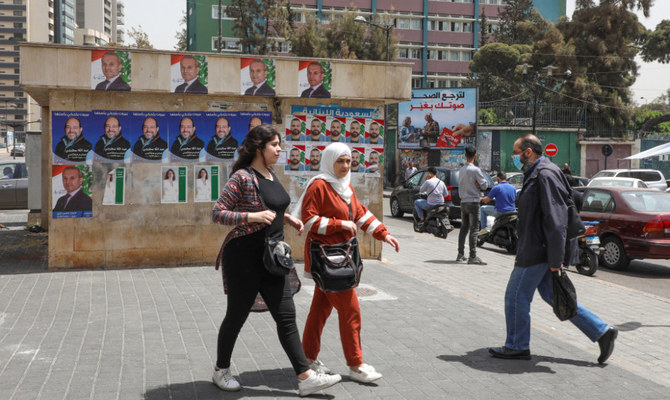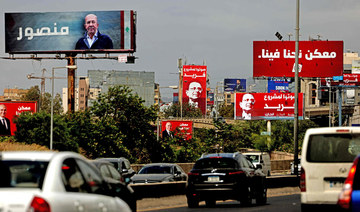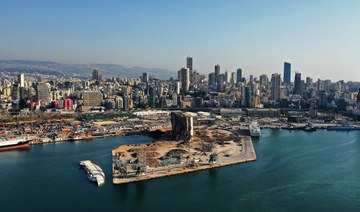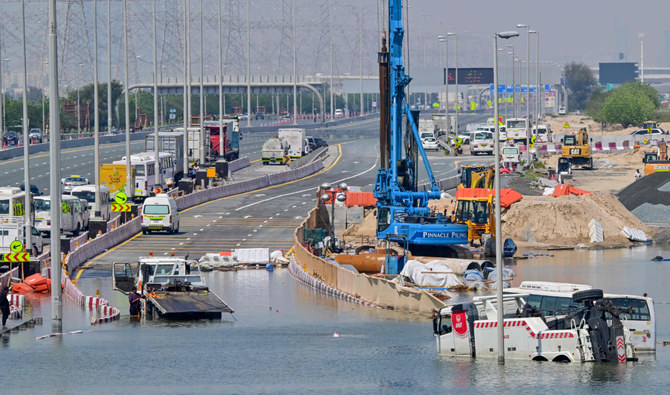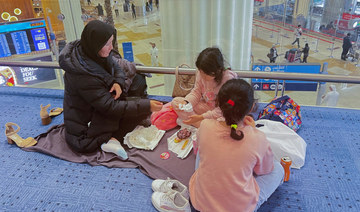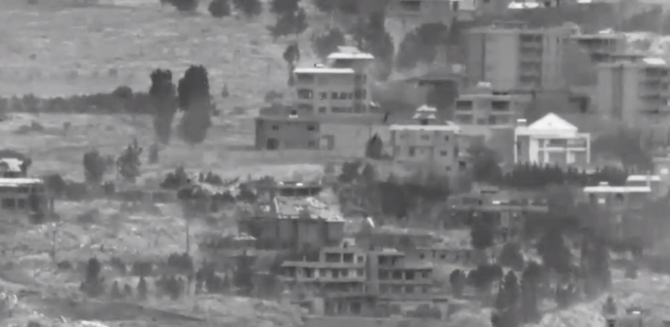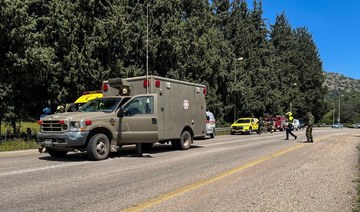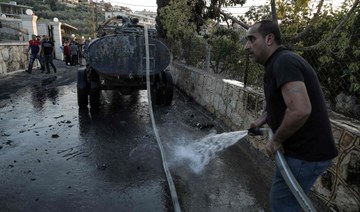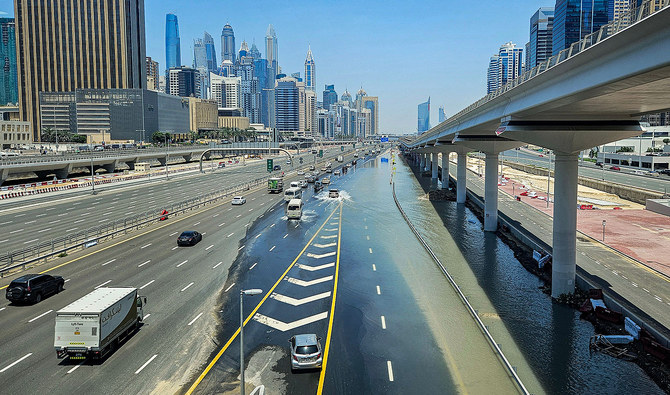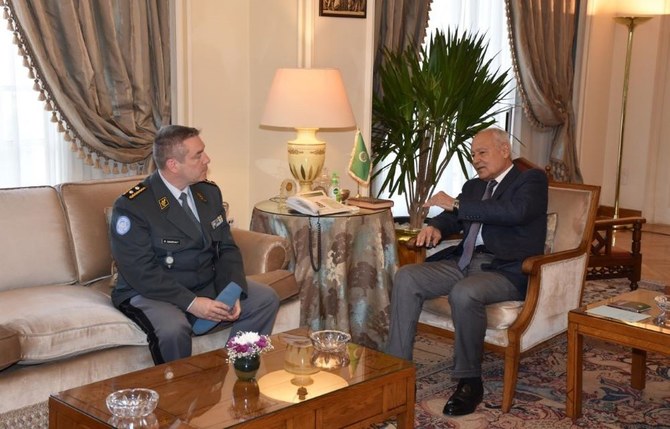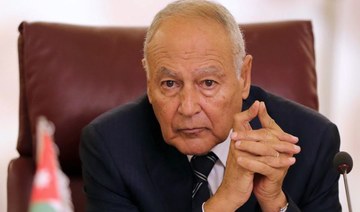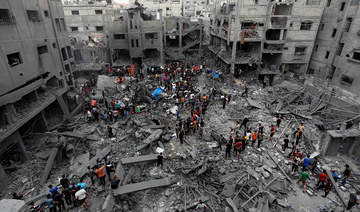BEIRUT: Gulf Cooperation Council ambassadors to Lebanon have urged the country’s voters to prioritize the national interest over any other.
The diplomats stressed that only those who preserved Lebanon, its sovereignty, freedom, Arab identity, and territorial integrity should become MPs.
Their appeal came as the third stage of the parliamentary elections for official employees took place on Thursday. These employees will manage the final stage of the elections on Sunday.
Almost 15,000 voted on Thursday in 29 polling stations to facilitate their work on Sunday. Voter turnout reached 50 percent by noon in some constituencies.
The envoys expressed their wish for a transparent electoral process to reflect the aspirations of the Lebanese.
The ambassadors said that “negativity toward the upcoming elections does not build a nation rather (it) allows others to fill the void and define the identity of Lebanon and its Arab people.”
Kuwaiti Ambassador to Lebanon Abdul-Al Sulaiman Al-Qenaei, Saudi Ambassador Walid Bukhari, and Qatari Ambassador Ibrahim Al-Sahlawi visited Lebanon's Grand Mufti Sheikh Abdel-Latif Derian.
“Boycotting the elections would be surrendering,” the religious leader warned after meeting the diplomats. “We do not want to hand Lebanon over to the enemies of Arabism. We have to realize that whoever wins the elections determines Lebanon's future and its relations with its Arab brothers and friends.”
The grand mufti's remarks came amid local calls for electoral participation.
The appeals have gained significance since Sunnis said they would boycott the polls due to the decision from the head of the Future Movement, former Prime Minister Saad Hariri, to step down from politics and not contest the election.
Dar Al-Fatwa’s media office said: “The three ambassadors stressed the importance of the religious and national role that Dar Al-Fatwa has played and is playing to strengthen the unity of the Lebanese and Islamic ranks amid the difficult circumstances in Lebanon, the homeland of moderation, love, convergence, and coexistence.
“They reiterated their support, cooperation, and solidarity with the Lebanese people and institutions, and their keenness on national unity, noting that Lebanon's unity, and its Islamic-Christian coexistence model, is a guarantee for the unity of the Lebanese.”
Lebanon’s Arab Clans and the Beirut Families Union stressed the necessity of “full and complete commitment to Derian's call for massive participation in Sunday's elections.”
It said that systematic voting was required to “preserve Lebanon's independence, the sovereignty of the state of legitimate institutions, its identity, its Arab relations, and its international friendships.”
It added: “Boycotting is a malicious and treacherous deception, promoted by the enemies of democracy and the Lebanon of coexistence, in favor of strange and suspicious projects and racist suicidal alliances that have ravaged our country.”
The statement stressed that the Sunni community was a “key component in Lebanon, and it will not give up its national and Arab role for anyone. Boycotting the elections is a suicide. Casting a blank ballot is a waste. Rational participation is a victory.”
It also said the elections would not be “swindled by the pseudo-leaders who sold themselves and their homelands at a cheap price.”
Amid calls for mass participation, the Lebanese Association for Democratic Elections expressed concerns about the integrity of Sunday’s elections.
President Michel Aoun said: “We received information about the illegal disbursement of funds.”
During the penultimate Cabinet session on Thursday, he called on the ministers of justice, defense, and interior to instruct the army’s intelligence agency and security forces to crack down on bribery during the election period.
LADE said that some employees were unfamiliar with the voting mechanism, even though they are tasked with managing the largest and most critical electoral process on Sunday and have already undergone training.
An Arab League delegation, headed by Ahmed Rachid Khattabi, arrived in Lebanon on Wednesday to supervise the elections.
After touring several polling stations Thursday, Khattabi said: “The delegation arrived in Beirut at the Lebanese interior minister’s invitation to monitor the course of this legislative entitlement, which is of special and pivotal importance in the course of national action.”
Lebanese Army commander Gen. Joseph Aoun has already stressed that troops are ready to maintain the security of the elections.
He said the military would operate with the utmost impartiality and only intervene to prevent clashes.
He was speaking at a meeting on Tuesday with the commanding staff and the leaders of the major units and independent regiments.
He called on the parties running for election to assume national responsibility and cooperate with the military to hold the vote in a calm and democratic atmosphere.
A report from the UN special rapporteur on the issue of extreme poverty and human rights, Olivier de Schutter, issued on Wednesday said 80 percent of people in Lebanon were living below the poverty line as prices had risen by over 200 percent.
It said nine out of 10 people had difficulty earning an income and an average of six out of 10 would leave the country if they got the chance.
The head of the Association of Petroleum Importing Companies, Maroun Chammas, expected demand for gasoline to double from Friday until Monday.
The total consumption of gasoline is expected to reach about 37 million liters, an increase of about 14 million liters over regular days.
“The general cost of gasoline canisters that will be consumed from Friday to Monday, is about LBP938 billion ($622.22 million), an increase of about LBP355 billion compared to normal days,” he said.
These figures did not include the cost and quantities needed by the armed forces this upcoming election weekend, Shammas added.



